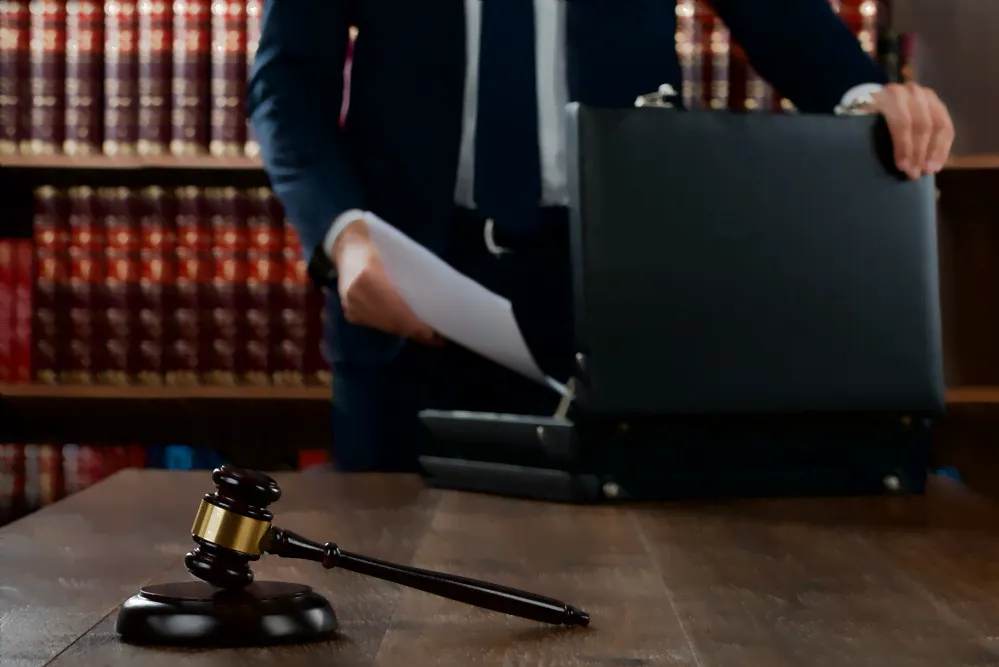Sexual misconduct is a widespread problem that can occur in any personal, institutional, or work setting. Often, the perpetrator is someone the victim knows. In rare circumstances, sexual misconduct occurs at the hands of a stranger. If you experienced sexual abuse or harassment, talking with a sexual abuse lawyer in Casper, Wyoming or Cheyenne, Wyoming can help you get justice.
What Kinds of Sexual Conduct Can You Sue for?
Unless your case involves rape or another egregious form of sexual misconduct, you may be unsure whether the perpetrator’s actions could be grounds for a lawsuit. What exactly constitutes sexual misconduct, and what actions can you take against the perpetrator based on the type of misconduct you experienced? This guide gives you some basic information as you decide on your next steps.
Sexual Assault
Sexual assault is a crime that can be prosecuted both criminally and civilly. The definition of sexual assault in Wyoming includes:
- Forced sexual intrusion of the victim (rape) or attempted rape
- Forced sexual contact
- Sexual abuse of a minor or an elder
While rape was once defined as unwanted intercourse between a woman and a male assailant, modern laws recognize it as any vaginal, oral, or anal penetration that occurs without consent. Forced sexual contact is a term that encompasses unwanted touching or fondling, oftentimes over the clothing.
Sexual Harassment
Sexual harassment is a term for unwanted sexual attention, including sexual contact. Jokes or teasing of a sexual nature, self-exposure, and inappropriate requests for sexual favors are all examples of sexual harassment. The perpetrator might also send texts, emails, or messages with sexual content, such as photos or descriptions of fantasies.
Civil vs. Criminal Charges
While only the forms of sexual harassment that constitute sexual assault can result in criminal charges, any form of sexual misconduct can be grounds for a civil lawsuit. In a civil lawsuit, the victim seeks damages (monetary compensation) for the wrongful act. Demonstrating a pattern of repeated and/or institutionalized behavior can increase the plaintiff’s chances of winning the lawsuit, especially if a formal complaint was made with any organization affiliated with the misconduct.
If you experienced sexual assault, you should report the incident to the police, which could lead to a criminal trial. Additionally, you retain the right to bring a civil lawsuit separately. The outcomes of the civil lawsuit and the criminal trial have no bearing on one another, and you can proceed with civil charges even if the incident is unreported and there is no criminal trial.
Criminal Trials
A conviction for a crime such as sexual assault in a criminal court can result in jail time, fines, and probation. In a criminal case, the victim does not actually bring the charges himself or herself. Rather, the government brings the charges, often relying on the victim’s testimony as crucial evidence. If the case ends in a plea bargain, the prosecution could secure a conviction without requiring the victim to testify.
For a criminal conviction to occur, the prosecution must show that enough evidence against the defendant exists to prove that the crime occurred “beyond a reasonable doubt.” Victims who are called as witnesses are often appointed an advocate who can coach them on their statements and help them prepare for the emotional aspects of testifying.
Civil Lawsuits
Bringing a civil lawsuit against your perpetrator is how you can seek financial compensation to cover any medical expenses and other losses associated with the crime. Other losses might include lost wages, physical pain, and emotional distress. If your employment was wrongfully terminated because you reported the incident, you might be eligible for reinstatement and repayment of any income you missed.
In a civil lawsuit, the victim brings the charges directly. The standard of proof is lower for civil lawsuits than criminal cases, requiring the plaintiff to show that the wrongful act “more than likely occurred” instead of proving the defendant’s guilt “beyond a reasonable doubt.” Sexual misconduct cases fall into the category of personal injury law.
The Statute of Limitations for Cases Involving Sexual Misconduct
In Wyoming, there is no statute of limitations for criminal cases involving sexual misconduct. Civil cases have a statute of limitations of four years for adults and three years for children (or eight years following the child’s 18th birthday).
Which Parties Are Liable?
In addition to filing a lawsuit against the perpetrator directly, you may be able to seek compensation from an organization or an institution that enabled the crime or failed to uphold its duty of care to keep you safe. Our personal injury attorneys will conduct a thorough investigation into the circumstances around the abuse you sustained so that you will have the information necessary to hold all liable parties accountable.
In the case of rape or sex trafficking, a hotel, restaurant, or transportation company may have been complicit. Schools, afterschool programs, and religious institutions are often found accountable for child sex abuse, while elder sex abuse can happen because of negligence by a nursing home or hospital. Sexual harassment frequently occurs in the workplace and often involves gender or pregnancy discrimination.
Filing a Claim
Why Consider Filing a Personal Injury Claim?
While individuals do not generally carry insurance covering a sexual misconduct lawsuit, organizations like schools and companies usually do. Filing a personal injury claim against the liable party’s insurance can result in you receiving a settlement without needing to go to court.
Seeking Damages From Individuals vs. Organizations
In general, filing a claim against an organization is a more reliable way to collect damages because individuals often do not have the means to pay, even when a court finds them responsible for compensating the plaintiff. However, monetary considerations aside, many victims of sexual misconduct experience a restored sense of justice when the perpetrator is found guilty.
You are legally entitled to pursue damages from multiple parties. That means that as a victim sexual misconduct, you do not need to choose between suing the individual or an organization.
Hiring a Sexual Abuse Lawyer
Recovering from any form of sexual misconduct is not something that you should have to do alone. Our lawyers understand that demanding accountability is an emotional process that can bring both challenges and a sense of closure. We will examine the details of your case as they relate to personal injury law while also considering whether or not employment and/or anti-discrimination laws could come into play.
Our goal is to provide you with the legal support you need to pursue your case, starting with assessing your grounds for a lawsuit. If you choose to press charges, we will follow our assessment with a detailed investigation designed to inform our strategy. Our objective is to empower you to seek maximum compensation for all your physical, emotional, and financial damages.
Contact Our Offices in Cheyenne, Wyoming or Casper, Wyoming
We are here for you regardless of how and if you decide to take legal action against the individual and or/organizations that wronged you. Our attorneys in Cheyenne, Wyoming and Casper, Wyoming will handle your case delicately and with compassion, prioritizing your privacy while working towards a just outcome. To speak with a sexual abuse lawyer about your legal options, contact Ochs Law Firm.







